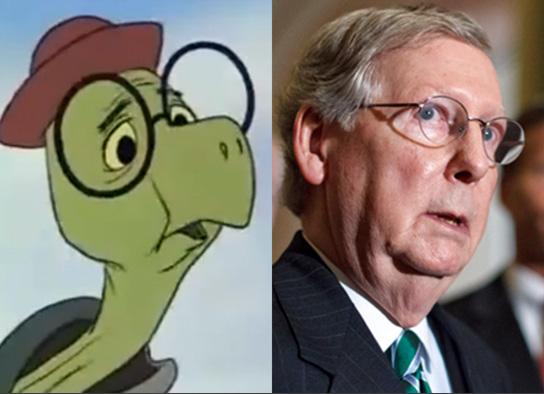Day 20-21 Sessions vs. Warren: Why It’s a Problem
 If you aren’t bothered by Senate majority leader Mitch McConnell’s resemblance to a turtle, you should be bothered by the face that he has been enforcing turtle-like slowness in congress. He was responsible last fall for delaying Obama’s Supreme Court nominee, and late Tuesday night, McConnell stooped to a new low, invoking a rarely-used congressional rule to silence Democratic Senator Elizabeth Warren.
If you aren’t bothered by Senate majority leader Mitch McConnell’s resemblance to a turtle, you should be bothered by the face that he has been enforcing turtle-like slowness in congress. He was responsible last fall for delaying Obama’s Supreme Court nominee, and late Tuesday night, McConnell stooped to a new low, invoking a rarely-used congressional rule to silence Democratic Senator Elizabeth Warren.
The incident occurred during the confirmation debate of recently-sworn-in attorney general Jeff Sessions. Warren was reading from a letter written by Coretta Scott King, Martin Luther King Jr.’s widow.
The letter was written in 1986, addressed to Strom Thurmond, chairman of the judiciary committee at the time. King was critical of Sessions’ nomination for a federal judgeship, a nomination that was eventually rejected.
Warren was reading the letter to highlight Sessions’ dubious history with black voting rights, using it as evidence that he is unfit to be attorney general. However, Senate Rule 19 prohibits a senator from speaking ill of another senator, in order to keep decorum within the legislative branch.
Since Sessions was technically an Alabama senator at the time of his hearing, Warren was technically in violation of the rule.
But the rule creates a conflict of interest when a senator gets nominated for a cabinet position, as all nominations must pass through the senate. Essentially, if you want a shitty person in your cabinet, just make sure he’s a senator first, and then you’re golden!
Despite the Sessions confirmation, McConnell’s efforts to silence Warren were eventually futile. Three Democratic senators read excerpts from the letter after Warren was banished, and Warren herself took to Facebook Live that night to read the letter in its entirety.
The sad truth is that we live in a country where the President can threaten to cut funding to one of the top universities in the world because of student backlash regarding a white nationalist guest speaker, but a respected congresswoman cannot read a letter from a prominent civil rights leader at a Senate hearing.
